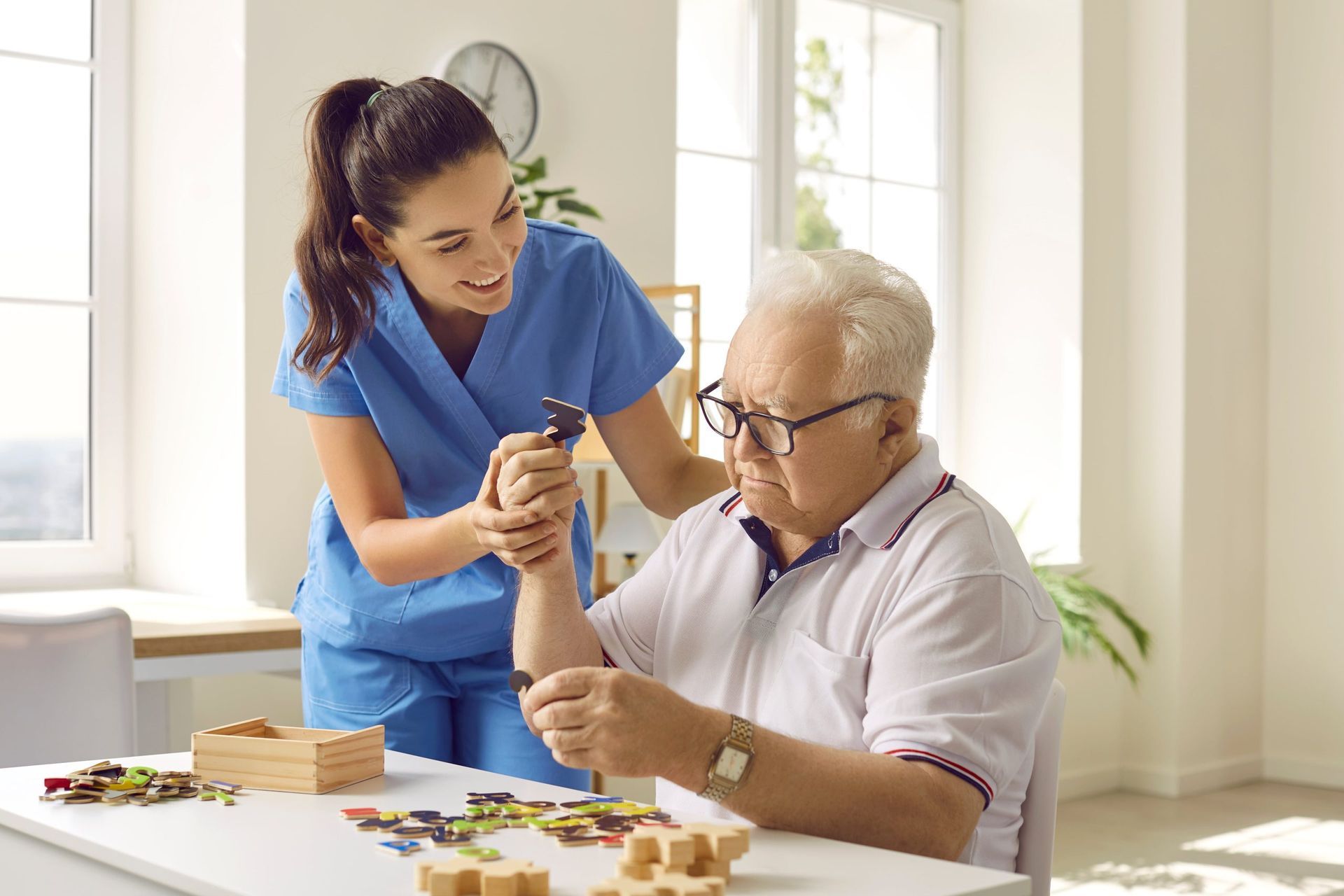What Is an Ileostomy Bag Used For?
What is a Ileostomy Bag Used For?
An ileostomy is a surgical procedure in which the small intestine is rerouted to an opening in the abdomen, known as a stoma, allowing waste to bypass the colon. This is typically necessary for individuals suffering from severe digestive conditions such as Crohn's disease, ulcerative colitis, or cancer. The ileostomy bag, worn externally, collects waste and offers a practical solution for managing bodily functions, bringing tremendous relief to those who have endured chronic pain, discomfort, or digestive issues. For many, an ileostomy significantly improves their quality of life, restoring freedom and dignity while reducing the physical and emotional strain of debilitating gastrointestinal conditions.
7 Day Home Care provides home care services in Manhattan, Queens, Brooklyn, Nassau County, and Suffolk County, New York. To learn more about our home care services near you, please call 516-408-0034.

Ileostomy is a Life-Changing Operation that Can Bring Tremendous Relief to People
An ileostomy bag is a medical device used to collect waste from the digestive tract after a surgical procedure that diverts waste away from the colon. This is a life-changing operation that can bring relief to people suffering from various conditions but also comes with its own set of challenges. At 7 Day Home Care, we recognize the importance of understanding such medical devices for both patients and their families. In this guide, we’ll cover everything you need to know about ileostomy bags, from why they are needed, to how to manage life with one, and the common questions people often have.
What is an Ileostomy?
Before diving into the specific uses of an ileostomy bag, it’s essential to understand what an ileostomy is. An ileostomy is a surgical procedure in which the ileum, the last part of the small intestine, is brought through an opening in the abdominal wall, creating a stoma. Waste material bypasses the colon and exits the body through this stoma, where it is collected in an ileostomy bag.
Ileostomies may be temporary or permanent, depending on the underlying condition that necessitated the surgery. Temporary ileostomies are often created to allow the bowel to heal after surgery, while permanent ileostomies are required when the colon is removed or permanently non-functional.
Why is an Ileostomy Performed?
There are several medical conditions and circumstances where an ileostomy may be necessary. Some of the most common include:
1.Inflammatory Bowel Disease (IBD): Conditions like Crohn’s disease or ulcerative colitis can cause severe inflammation of the colon. In some cases, part or all of the colon may need to be removed, making an ileostomy necessary.
2.Colorectal Cancer: If cancer affects the colon or rectum, part or all of the large intestine may need to be removed. An ileostomy provides an alternative route for waste elimination.
3.Diverticulitis: In severe cases of diverticulitis, small pouches in the colon wall become inflamed or infected, requiring surgical removal of part of the colon and an ileostomy.
4.Bowel Obstruction: When the bowel is blocked or damaged, an ileostomy can provide a solution to allow the bowel to heal or function properly.
5.Trauma or Injury: Injuries to the intestines or colon, whether due to an accident or a surgical complication, may necessitate the creation of an ileostomy.
6.Congenital Conditions: In some rare cases, children are born with conditions that affect bowel function, requiring an ileostomy to ensure proper waste elimination.
How Does an Ileostomy Bag Work?
An ileostomy bag is a specialized pouch designed to collect waste from the digestive system. After surgery, waste material (stool) exits the body through the stoma, which is the opening on the abdomen. The ileostomy bag is worn over this stoma to collect the waste.
There are several key features of an ileostomy bag:
•Odor Control: Modern ileostomy bags are designed with filters that help control odor, ensuring discretion for the user.
•Adhesive Baseplate: The bag attaches to the skin using a special adhesive, forming a secure seal around the stoma.
•Drainable or Closed: Most ileostomy bags are drainable, meaning they can be emptied when full and reused. However, some are closed and are disposed of when full.
•Skin Protection: Because waste material from an ileostomy contains digestive enzymes that can irritate the skin, the bag’s adhesive baseplate is designed to protect the skin from exposure to this material.
Types of Ileostomy Bags
There are several different types of ileostomy bags available, each suited to different needs and preferences:
1.One-Piece Systems: In a one-piece system, the bag and the adhesive baseplate are a single unit. These are simple to apply and change, making them ideal for those who prefer a straightforward solution.
2.Two-Piece Systems: In a two-piece system, the bag and the baseplate are separate components. This allows the user to change the bag without needing to remove the baseplate, which can be more comfortable for some.
3.Drainable Bags: Most ileostomy bags are designed to be drainable, allowing the user to empty the contents without changing the bag. These bags typically have a clip or Velcro closure at the bottom.
4.Closed-End Bags: These bags are intended for single-use and are disposed of when full. Closed-end bags are often preferred for convenience during travel or special occasions.
5.Convex Bags: For those with a recessed stoma (one that sits below the skin’s surface), convex bags provide a more secure fit by gently pushing the skin around the stoma outward.
How to Care for an Ileostomy Bag
Proper care of an ileostomy bag is crucial for preventing complications and maintaining quality of life. At 7 Day Home Care, we offer guidance on the best practices for ileostomy care.
1.Changing the Bag: Depending on the type of ileostomy bag, it may need to be changed every 3 to 7 days. It’s important to regularly inspect the skin around the stoma to ensure there is no irritation or infection.
2.Emptying the Bag: For drainable ileostomy bags, emptying should be done when the bag is about one-third to half full. Waiting too long to empty the bag can cause leaks and discomfort.
3.Skin Care: The skin around the stoma can be sensitive and prone to irritation, especially if waste leaks onto the skin. To protect the skin, make sure to clean it gently with warm water and pat it dry before attaching a new bag.
4.Dealing with Odor: Modern ileostomy bags have built-in filters to help control odor, but it’s still important to empty the bag frequently and clean it regularly to prevent any smells from developing.
5.Hydration and Nutrition: After an ileostomy, your body absorbs fluids differently, so it’s essential to stay hydrated and follow any dietary recommendations provided by your healthcare provider.
Life with an Ileostomy Bag
Living with an ileostomy bag can take some adjustment, but with the right support and resources, it’s entirely possible to lead a full and active life.
Physical Activity
Many people with ileostomies can return to their normal activities after they’ve healed from surgery. This includes exercise, sports, and even swimming. There are special waterproof covers and belts available for ileostomy bags, allowing individuals to swim without worrying about leaks or irritation.
Travel
Traveling with an ileostomy bag requires a bit of extra planning but is still very doable. Always bring extra supplies, including bags, adhesives, and wipes, as well as a doctor’s note explaining your condition in case you need to go through security checks at airports.
Diet
Dietary needs after an ileostomy can vary from person to person. In general, it’s recommended to eat smaller, more frequent meals and avoid foods that might cause blockages, such as high-fiber items. Staying hydrated is crucial since the colon, which helps absorb water, is no longer in use.
Support
At 7 Day Home Care, we understand that living with an ileostomy can be emotionally and physically challenging. That’s why we offer home care services tailored to help individuals manage their ileostomy and other medical needs. Our trained caregivers can assist with tasks such as changing the bag, monitoring for complications, and offering support during the adjustment period.
Ileostomy Bag Common Complications and Solutions
While most people adapt well to living with an ileostomy bag, there are potential complications that can arise. Some of these include:
1.Skin Irritation: This is one of the most common issues people face. Proper fitting of the bag and using skin protectants can help prevent irritation.
2.Blockages: A blockage can occur if undigested food obstructs the stoma. Symptoms include cramping, bloating, and a lack of output in the bag. In most cases, a liquid diet and massaging the abdomen can help relieve the blockage, but severe cases may require medical intervention.
3.Stoma Prolapse: A stoma prolapse occurs when the stoma becomes elongated and protrudes more than normal. This can often be managed with a different type of bag or stoma support belt, though surgery may be needed in severe cases.
4.Dehydration: Since the colon is responsible for absorbing water, people with an ileostomy can become dehydrated more easily. It’s important to drink plenty of fluids and monitor for signs of dehydration.
The information provided in this article by 7 Day Home Care regarding ileostomy and ileostomy bag usage is for educational purposes only and should not be considered medical advice. Always consult with a licensed healthcare professional for a proper diagnosis, treatment plan, and guidance specific to your condition. The content is not intended to replace professional medical consultation, diagnosis, or treatment, and individuals should not rely solely on this information for managing their healthcare needs. 7 Day Home Care is not responsible for any outcomes based on the information provided here.
An ileostomy bag is a critical tool that helps individuals manage their waste after surgery, providing a solution for a range of digestive conditions. While adjusting to life with an ileostomy may take time, with the right care and support, it’s entirely possible to maintain a high quality of life.
At 7 Day Home Care, we are committed to providing the care and support that ileostomy patients need. Whether you or a loved one is recovering from surgery or needs assistance managing daily life with an ileostomy bag, our team of certified home health aides is here to help. Contact us today at 516-408-0034 to learn more about our home care services and how we can support you on your health journey.
Brian Callahan
7 Day Home Care

Living With Parkinson’s Disease: How In-Home Care Helps Seniors Stay Safe, Independent & Comfortable









